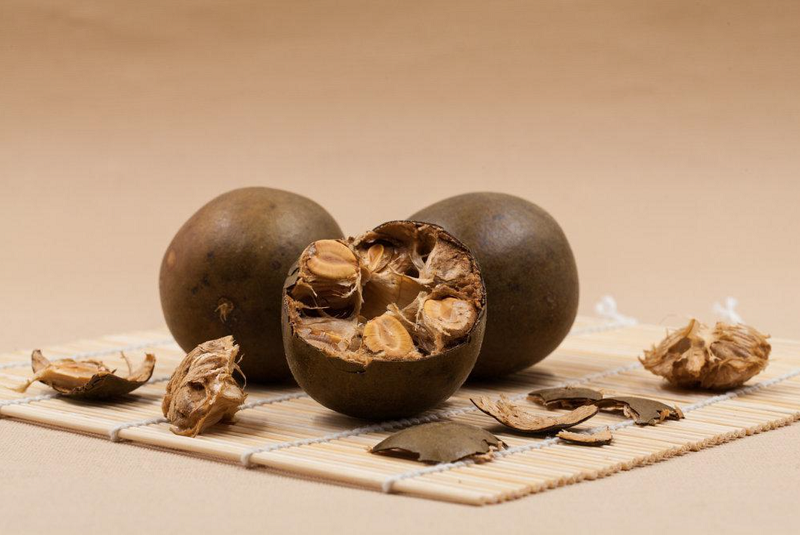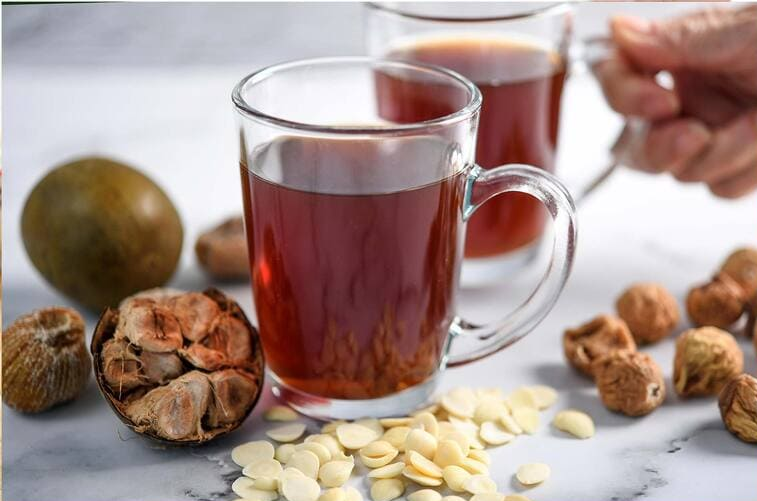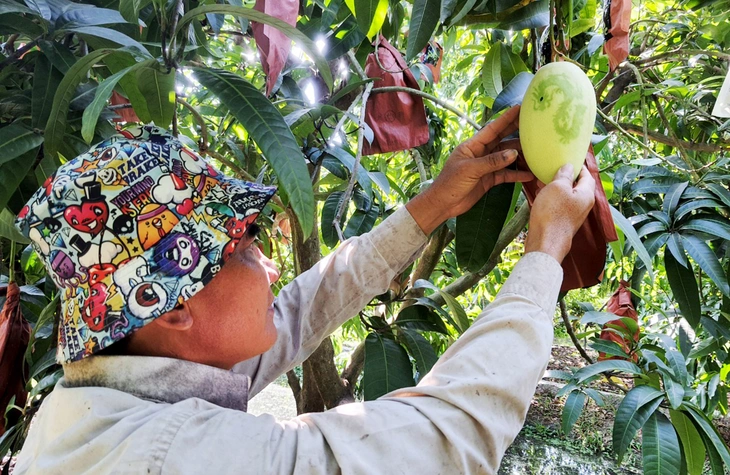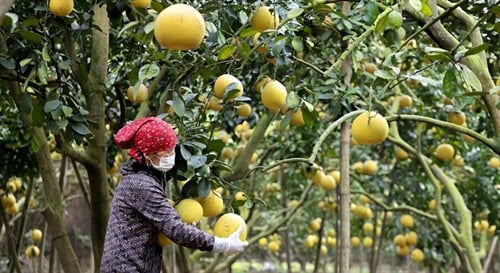Monk fruit is not only famous for its natural sweet taste, but also known for its wonderful health benefits.

For a long time, monk fruit has been considered the "longevity fruit" thanks to its high antioxidant content and anti-inflammatory effects - Illustration photo
Dr. Nguyen Thuy Ngan, Vietnam Institute for Research and Development of Traditional Medicine, said that the monk fruit (also known as la han qua) has long been considered the "longevity fruit", thanks to its high antioxidant content and anti-inflammatory effects.
Throughout history, it has been used in traditional medicine as an expectorant, cough medicine, constipation treatment, and as a heat-clearing agent for the body.
Today, experts consider natural plant sweeteners, such as stevia and monk fruit, to be attractive alternatives to sugar. The benefits of monk fruit include:
Contains antioxidants that fight free radicals
Monk fruit's mogrosides, the compounds responsible for its rich sweetness, are also powerful antioxidants. Studies have shown that mogrosides "significantly inhibit reactive oxygen species and DNA oxidative damage" in animals.
The fact that the same monk fruit ingredient that provides antioxidants also provides a zero-calorie sweetener makes it a great sugar substitute.
May help reduce the risk of obesity and diabetes
A 2017 study published in the journal Obesity stated: "Replacing artificial sweeteners with non-nutritive sweeteners (NNS) may aid in glycemic control and weight management."
In this study, nonnutritive sweeteners including aspartame, monk fruit, and stevia, were found to contribute significantly less to total daily energy intake, postprandial glucose levels, and insulin release than sucrose-sweetened beverages.
According to studies, monk fruit can improve insulin response without affecting blood sugar. This means it can provide the sweet taste we crave without the harmful side effects.
Research shows that using sweeteners made from monk fruit can help people who already have obesity and diabetes from getting worse.
Has anti-inflammatory effects
The ancient Chinese used this fruit to cool and help the body recover from problems such as fever and heatstroke. It was also used to soothe a sore throat.
This method is effective thanks to the mogrosides found in monk fruit, which have natural anti-inflammatory effects.

Although monk fruit is very good for health, you should still be careful when consuming large quantities - Illustration photo
May help fight cancer growth
There is evidence that the seeds and extracts of this fruit have anti-cancer effects. Extracts of monk fruit have been shown to inhibit the growth of skin and breast tumors, providing proteins with anti-cancer properties.
While other sweeteners have been shown to increase the risk of cancer, sweeteners from monk fruit have the potential to help reduce this risk.
Opportunity to help fight infection
Monk fruit has been shown to inhibit the growth of certain bacteria, particularly oral bacteria that cause tooth decay and periodontal disease.
These studies also show the fruit's ability to combat certain forms of candida symptoms and overgrowth, such as thrush, which if left untreated can affect many other systems in the body.
Additionally, monk fruit has been shown to act as a prebiotic and modulate the composition of gut bacteria to improve gut health. This may also help protect against infections.
Fight fatigue
In a study on mice, monk fruit extract was successful in reducing fatigue in mice that were exercising. The study was able to replicate the results and demonstrated that mice given the extract were able to exercise for longer periods of time.
Research provides evidence to explain why the monk fruit has long been known as the "fruit of longevity."
Suitable for diabetics and low glycemic diets
This fruit has been used by the Chinese as an anti-diabetic medicine for centuries. In addition to being a proven anti-hyperglycemic agent, animal studies have also shown that its antioxidant properties target pancreatic cells, allowing for better insulin secretion in the body.
The antidiabetic properties of monk fruit are related to its high mogrosides content, as demonstrated in rats.
As a low-glycemic sweetener, it also allows people struggling with diabetes to enjoy a sweet taste without worrying about affecting or worsening their diabetes. For the same reason, monk fruit is a good choice for those on a keto diet or other low-carb diet.
Acts as a natural antihistamine
Extracts from monk fruit when used repeatedly also show the ability to fight allergic reactions.
In a study with mice, monk fruit was repeatedly given to mice that exhibited nasal itching and scratching caused by histamine. The study found that “both monk fruit extract and glycosides inhibited histamine release” in the test subjects.
 Which type of sugar is healthier?
Which type of sugar is healthier?Source: https://tuoitre.vn/loi-ich-suc-khoe-dang-ngac-nhien-cua-qua-la-han-20250306084204621.htm


![[Photo] Looking back at the impressive moments of the Vietnamese rescue team in Myanmar](https://vstatic.vietnam.vn/vietnam/resource/IMAGE/2025/4/11/5623ca902a934e19b604c718265249d0)



![[Photo] "Beauties" participate in the parade rehearsal at Bien Hoa airport](https://vstatic.vietnam.vn/vietnam/resource/IMAGE/2025/4/11/155502af3384431e918de0e2e585d13a)




![[Photo] Summary of parade practice in preparation for the April 30th celebration](https://vstatic.vietnam.vn/vietnam/resource/IMAGE/2025/4/11/78cfee0f2cc045b387ff1a4362b5950f)




























































Comment (0)